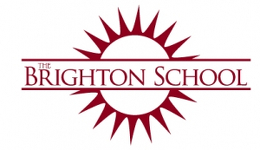Subjects
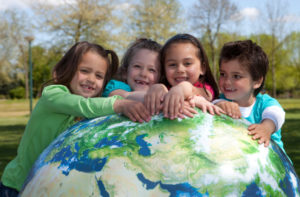 Social Studies
Social Studies
The social studies curriculum enables students to understand, participate in and make informed decisions about their world. It provides students with purposeful and meaningful learning experiences that are challenging, of high quality, developmentally appropriate, and reflective of contemporary social and diverse global realities. Social studies at The Brighton School is taught through the use of thematic units of study. The social studies curriculum draws from multiple disciplines, including: history, geography, archaeology, sociology, and political science. The program challenges students to broaden their understanding of the world by creating projects, examining current events, and participating in class discussions. Field trips, research reports and an integrated curriculum are used to enhance the students’ social studies experience.
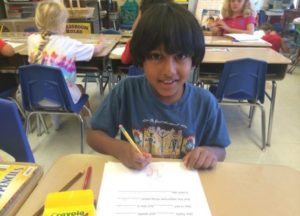
Language Arts
Designed to meet the needs of all students, The Brighton School’s language Arts program is an integrated, vital component of study at all levels. The curriculum is a combination of reading, writing, grammar, spelling, phonics, and handwriting. The students are taught reading, writing, listening, and speaking as tools for communication. The students at The Brighton School acquire and develop analytical reading skills. Through the Accelerated Reader Program, the students are given the opportunity on a daily basis to individually and silently read books of interest to them. To extend their experience with a book, students are allowed academic choice to share their book in a way that interests them. Some examples may include; performing a puppet show, writing another short chapter of the book, acting out a scene, writing a traditional book report, or designing a poster. Brighton School students also write on a daily basis using 6 Traits of Writing and Writer’s Workshop. They develop a strong and varied vocabulary commensurate with each student’s academic ability. The students also explore diverse literary works which allows them to recognize universal themes. Challenging and enriching assignments engage the students in every grade to help them develop into critical thinkers. The language arts curriculum is geared to fostering a lifelong love of literature and the written word.
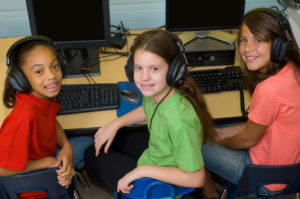 Spanish
Spanish
The Brighton School’s Spanish program expands the student’s limits of their immediate environment and language by exposing them to the richness of another language and culture. The foreign language specialist introduces Spanish to the students as they enter Pre-Kindergarten and continues through Grade 6. The Spanish program utilizes thematic lessons to incorporate music, dance, arts and crafts, role play, reading, writing, and the use of technology to accommodate individual learning styles. Throughout the years, the focus is on developing conversation skills and building vocabulary. Each student will learn Spanish vocabulary and grammar that will be supported through experiential and contextual learning. Hands-on activities and active learning are an important part of the Spanish curriculum. Each year the students participate in an end of the year celebration where they have the opportunity to showcase their Spanish by singing, dancing, performing skits, and enjoying Spanish cuisine.
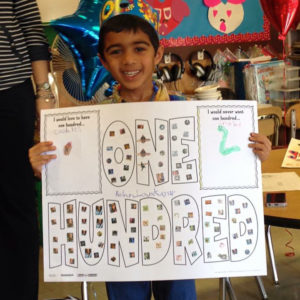 Mathematics
Mathematics
The mathematics program provides a framework in which students develop their mathematical ability and its uses in everyday life. Mathematics is learned through the process of building skills and understanding. The mathematics curriculum is both accelerated and enriched. Most Brighton School students work at least one year above their respective grade level. The students have multiple opportunities throughout the school day to apply their math knowledge. Basic skills and math facts are essential to building a strong foundation and are addressed in each grade. All students work on problem solving strategies and learn that there can be several ways to solve a problem. This is very appealing to a variety of learning styles. In addition to pencil and paper, manipulatives, calculators, games, activities, and computers are utilized in solving mathematical problems. The goals of the mathematics program across all grades are to have students demonstrate the ability to: effectively communicate mathematical understanding, think conceptually, solve problems systematically, and apply skills in real-life situations.
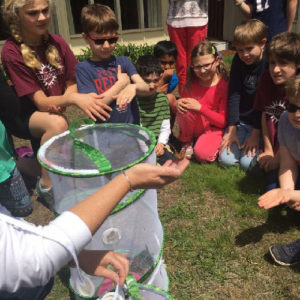 Science
Science
Because we believe that active learning leads to scientific knowledge, hand-on science is standard at The Brighton School. All students participate in science lessons centered on thematic units. Beginning in Kindergarten, Brighton School students begin to explore a wide array of Science topics designed to develop their ability to question, test and form conclusions. Lessons in life science, physical science, and earth science lead students to the key understanding of scientific concepts.
Students in K-2 spend their Science classes exploring and asking questions. Topics such as magnets, sinking and floating, insects and forces are just a sample of units of study that introduce students to inquiry based thinking. By making predictions and testing ideas, students become invested in the process of discovery; always encouraged to try a new approach when encountering obstacles. Students will learn the scientific method of inquiry as preparation for more in depth approaches in subsequent years. Students in 3-6 take their inquiry based experience to a new level; attacking more advanced topics and using more complex thinking to problem solve. Predictions and observations are paired with the ability to record appropriate results in a variety of ways, and to draw conclusions from those results. Topics such as chemistry, electricity, simple machines and flight are a few of the units of study that bring the older grades into more sophisticated material, offering daily challenges through exciting experiments. All students are encouraged to participate in the annual Science Fair where they can focus their attention on an area of science that interests them.
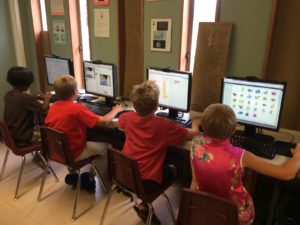 Technology
Technology
Technology is integrated across the curriculum at The Brighton School. Students receive computer instruction by a specialist teacher several times a week. The facility has a computer lab with 10 workstations. In the early grades, students are introduced to computers and learn operating procedures. They begin to learn keyboarding and word processing. As the students move forward, their computer knowledge is built upon by learning computer literacy, file management skills, use of graphics, desktop publishing and multi-media presentation skills using PowerPoint. In addition, the students benefit from weekly lessons in Robotics (Dash and Dot), Electronics (Little Bits) and SCRATCH (an introduction to programming developed by the Lifelong Kindergarten Group at the MIT Media Lab). These advanced technology classes include important concepts from math and physics. All technology classes are used to enhance the curriculum across the various subject areas.
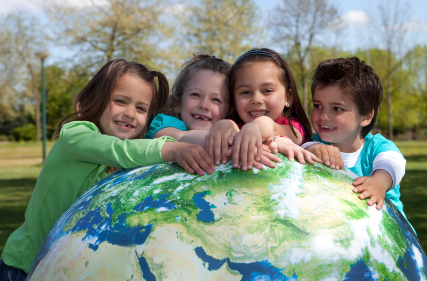
Social Studies
The social studies curriculum enables students to understand, participate in and make informed decisions about their world. It provides students with purposeful and meaningful learning experiences that are challenging, of high quality, developmentally appropriate, and reflective of contemporary social and diverse global realities. Social studies at The Brighton School is taught through the use of thematic units of study. The social studies curriculum draws from multiple disciplines, including: history, geography, archaeology, sociology, and political science. The program challenges students to broaden their understanding of the world by creating projects, examining current events, and participating in class discussions. Field trips, research reports and an integrated curriculum are used to enhance the students’ social studies experience.
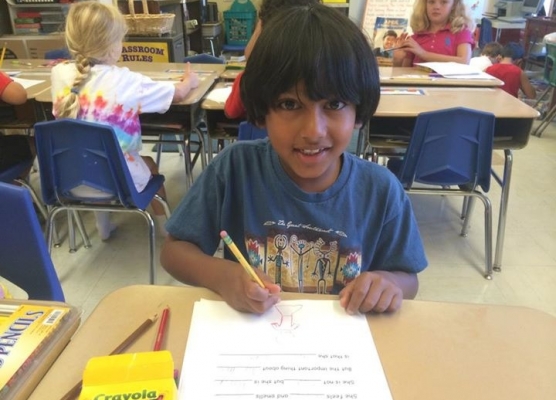
Language Arts
Designed to meet the needs of all students, The Brighton School’s language Arts program is an integrated, vital component of study at all levels. The curriculum is a combination of reading, writing, grammar, spelling, phonics, and handwriting. The students are taught reading, writing, listening, and speaking as tools for communication. The students at The Brighton School acquire and develop analytical reading skills. Through the Accelerated Reader Program, the students are given the opportunity on a daily basis to individually and silently read books of interest to them. To extend their experience with a book, students are allowed academic choice to share their book in a way that interests them. Some examples may include; performing a puppet show, writing another short chapter of the book, acting out a scene, writing a traditional book report, or designing a poster. Brighton School students also write on a daily basis using 6 Traits of Writing and Writer’s Workshop. They develop a strong and varied vocabulary commensurate with each student’s academic ability. The students also explore diverse literary works which allows them to recognize universal themes. Challenging and enriching assignments engage the students in every grade to help them develop into critical thinkers. The language arts curriculum is geared to fostering a lifelong love of literature and the written word.

Spanish
The Brighton School’s Spanish program expands the student’s limits of their immediate environment and language by exposing them to the richness of another language and culture. The foreign language specialist introduces Spanish to the students as they enter Pre-Kindergarten and continues through Grade 6. The Spanish program utilizes thematic lessons to incorporate music, dance, arts and crafts, role play, reading, writing, and the use of technology to accommodate individual learning styles. Throughout the years, the focus is on developing conversation skills and building vocabulary. Each student will learn Spanish vocabulary and grammar that will be supported through experiential and contextual learning. Hands-on activities and active learning are an important part of the Spanish curriculum. Each year the students participate in an end of the year celebration where they have the opportunity to showcase their Spanish by singing, dancing, performing skits, and enjoying Spanish cuisine.
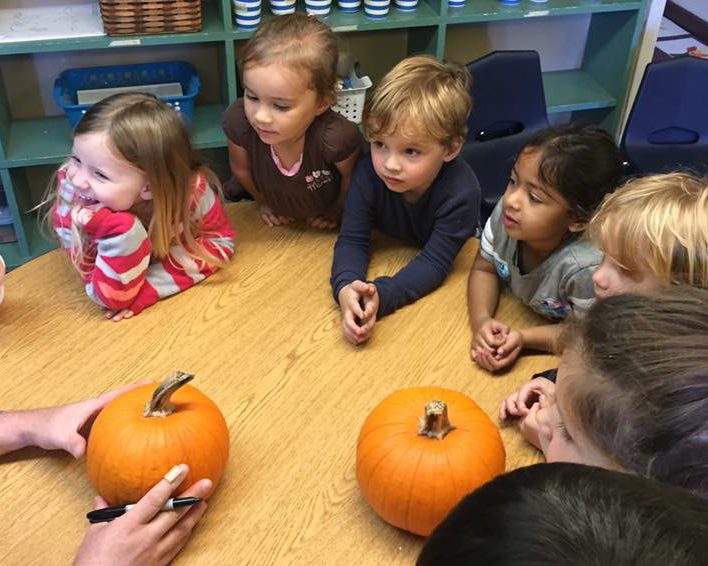
Mathematics
The mathematics program provides a framework in which students develop their mathematical ability and its uses in everyday life. Mathematics is learned through the process of building skills and understanding. The mathematics curriculum is both accelerated and enriched. Most Brighton School students work at least one year above their respective grade level. The students have multiple opportunities throughout the school day to apply their math knowledge. Basic skills and math facts are essential to building a strong foundation and are addressed in each grade. All students work on problem solving strategies and learn that there can be several ways to solve a problem. This is very appealing to a variety of learning styles. In addition to pencil and paper, manipulatives, calculators, games, activities, and computers are utilized in solving mathematical problems. The goals of the mathematics program across all grades are to have students demonstrate the ability to: effectively communicate mathematical understanding, think conceptually, solve problems systematically, and apply skills in real-life situations.
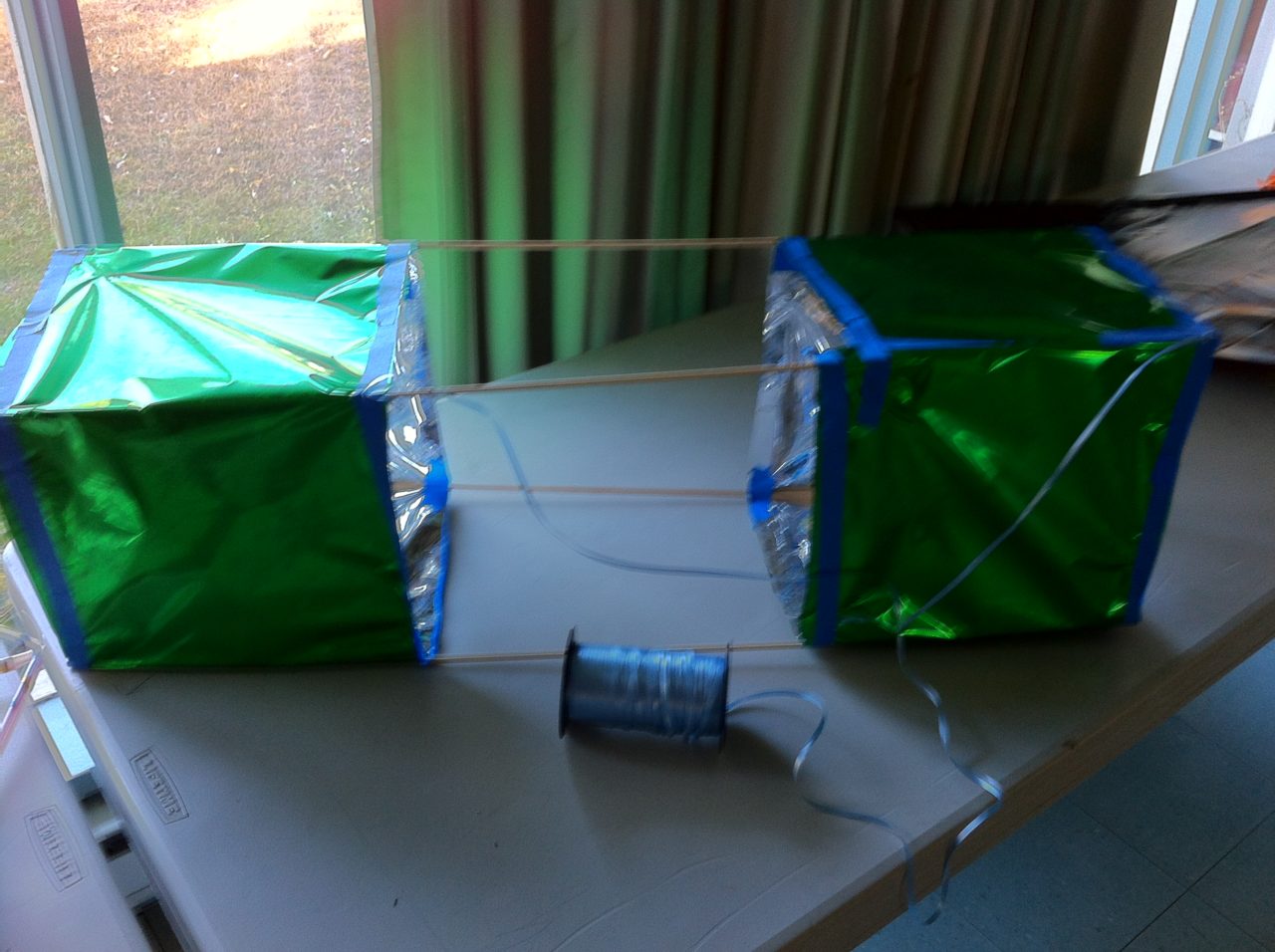
Science
Because we believe that active learning leads to scientific knowledge, hand-on science is standard at The Brighton School. All students participate in science lessons centered on thematic units. Beginning in Kindergarten, Brighton School students begin to explore a wide array of Science topics designed to develop their ability to question, test and form conclusions. Lessons in life science, physical science, and earth science lead students to the key understanding of scientific concepts. Students in K-2 spend their Science classes exploring and asking questions. Topics such as magnets, sinking and floating, insects and forces are just a sample of units of study that introduce students to inquiry based thinking. By making predictions and testing ideas, students become invested in the process of discovery; always encouraged to try a new approach when encountering obstacles. Students will learn the scientific method of inquiry as preparation for more in depth approaches in subsequent years. Students in 3-6 take their inquiry based experience to a new level; attacking more advanced topics and using more complex thinking to problem solve. Predictions and observations are paired with the ability to record appropriate results in a variety of ways, and to draw conclusions from those results. Topics such as chemistry, electricity, simple machines and flight are a few of the units of study that bring the older grades into more sophisticated material, offering daily challenges through exciting experiments. All students are encouraged to participate in the annual Science Fair where they can focus their attention on an area of science that interests them.
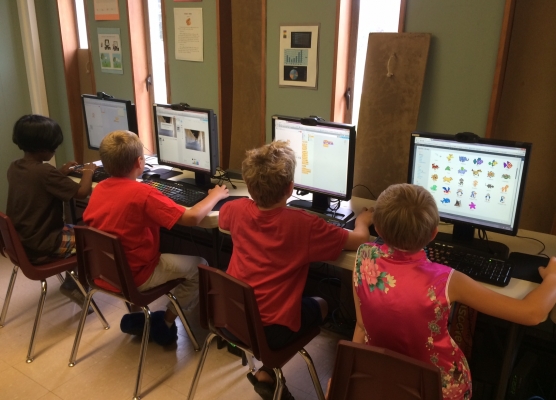
Technology
Technology is integrated across the curriculum at The Brighton School. Students receive computer instruction by a specialist teacher several times a week. The facility has a computer lab with 10 workstations. In the early grades, students are introduced to computers and learn operating procedures. They begin to learn keyboarding and word processing. As the students move forward, their computer knowledge is built upon by learning computer literacy, file management skills, use of graphics, desktop publishing and multi-media presentation skills using PowerPoint. In addition, the students benefit from weekly lessons in Robotics (Dash and Dot), Electronics (Little Bits) and SCRATCH (an introduction to programming developed by the Lifelong Kindergarten Group at the MIT Media Lab). These advanced technology classes include important concepts from math and physics. All technology classes are used to enhance the curriculum across the various subject areas.
Where Bright Minds Come Together
Interested parents should inquire here
